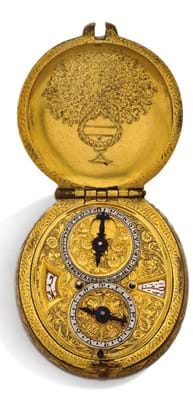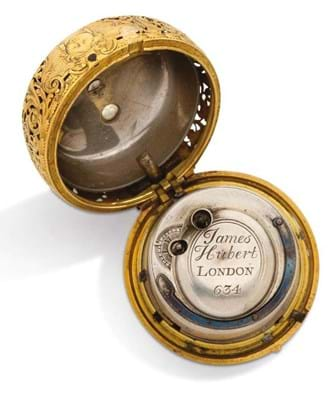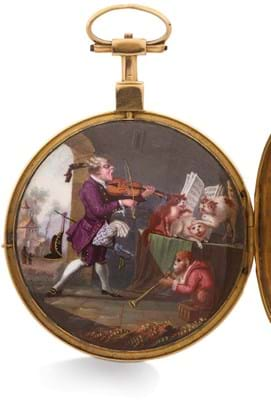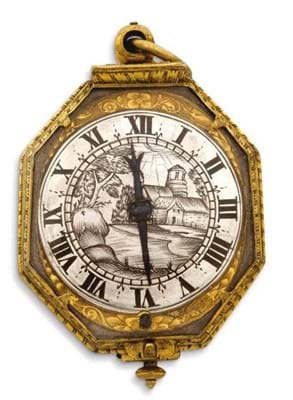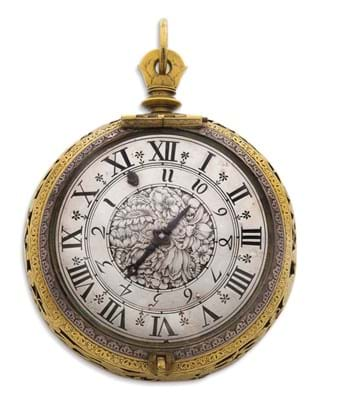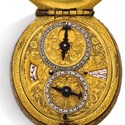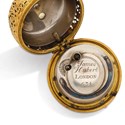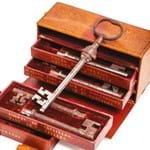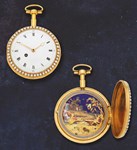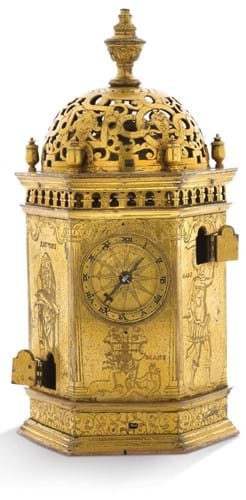
Gilt copper northern French mid-16th century table clock which prefigures the miniaturisation of the first portable watches. It realised €152,000 (£135,715) at Aguttes.
Featuring both pocket watches and portable timekeepers, it comprised around 80 examples dating back as far as the 16th century and had been in the same family for around 60 years.
The sale on September 28 drew competition from bidders in the room, online and on the phone and generated some protracted bidding battles for certain pieces. In the end, 95% of the lots found buyers for a premium-inclusive total of over €1.47m.
Geoffroy Ader, the horology specialist for the auction, said: “This solid sale paid a fine tribute to the collector and to the history of time, with the various watch mechanisms sold, from the tower clock to the singing bird, with an audience of international bidders.”
Tower pioneer
One of the top-priced lots was among the earliest in the sale: a mid-16th century table clock in the form of a hexagonal tower which left its €20,000-30,000 estimate far behind when it sold for €152,000 (£135,715).
This 7in (18cm) high clock has a key wound mechanical movement, escapement with wheel, cogs, spindle and gut fusée for the hours and striking and was described by Ader as “a model of its kind which perfectly illustrates the beginnings of domestic watchmaking which led to the birth of the watch”.
The gilt copper case has a strapwork pierced dome for the bell and is engraved to all faces of the body.
The front features a naked figure of Diana and a stag below the dial as well as the arms of Guillaume Bailly, Count of La Ferté Aleps (1519-82), while the inside back features the arms of Bailly and his wife Madeleine Harel (1524-79).
To the sides are figures of Mars, Mercury, Jupiter, Venus and Saturn and there are also small windows that open in the case to access the mechanism. The base is struck with the punch Abe P Plantard in a cartouche.
The clock is the work of a maker whose first name has not been identified but who probably belonged to the Plantard family of Abbeville in northern France. According to family tradition, it was acquired from Kugel in 1973.
Guillaume Bailly, who had commissioned the clock, was born in Paris to a father who was an examiner at Châtelet, Paris, and was admitted as a lawyer to the Paris Parliament in 1538. He went on to become a high official in the French kingdom and later in 1582 became the 44th abbot of the Abbey of Bourgueil. He lasted only 22 days in this role, however, as he died as the result of poisoning while dining with the Count of Montsoreau at the château de La Coutancière and was buried in the Abbey church.
Sweet tweet success
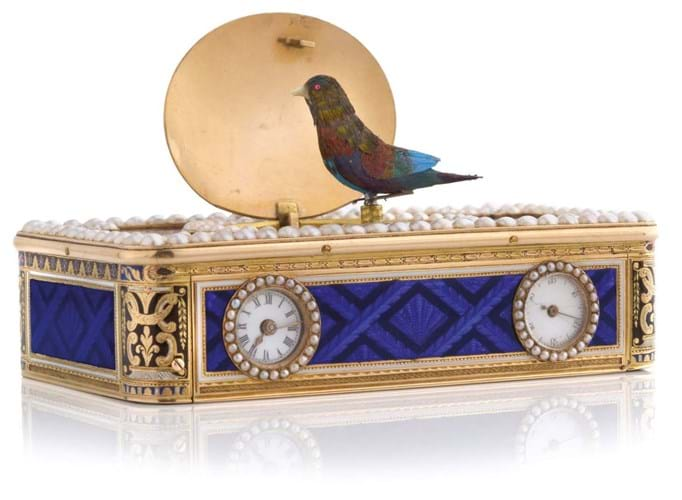
The 3¾in (9.5cm) Swiss singing bird and watch case which led the Aguttes horological auction at €255,000 (£227,680).
Topping the sale at €255,000 (£227,680) was a gold cased singing bird watch with a musical clock movement.
Dating from the early 19th century and of Swiss manufacture, the movement is attributed to Rochat Frères and the gold guilloché, enamel and pearl set case has the mark inside the lid for the workshop of the goldsmith Jean-Georges Rémond.
It also features a medallion painted with The Return of the Warrior.
It came with two cases; one in red Morocco signed Berry-Hill New York London, the other probably of the period. This piece was formerly in the collection of King Farouk of Egypt and sold by Sotheby’s in 1954.
At Aguttes it made a price that was over three times the low estimate (guided at €70,000-100,000).
The auction was also notable for the large number of pocket watches spanning the 17th to 19th centuries by a variety of French, Swiss, German and English makers.
Price guides ranging from five figures to under €1000 meant the collection offered something to suit the purses of all enthusiasts.
Pictured here is a selection of what the sale had to offer.
The English 17th century silver memento mori watch from the sale which was pictured and previewed in ATG No 2558 was knocked down at €10,000 (£8930).
£1 = €1.12


